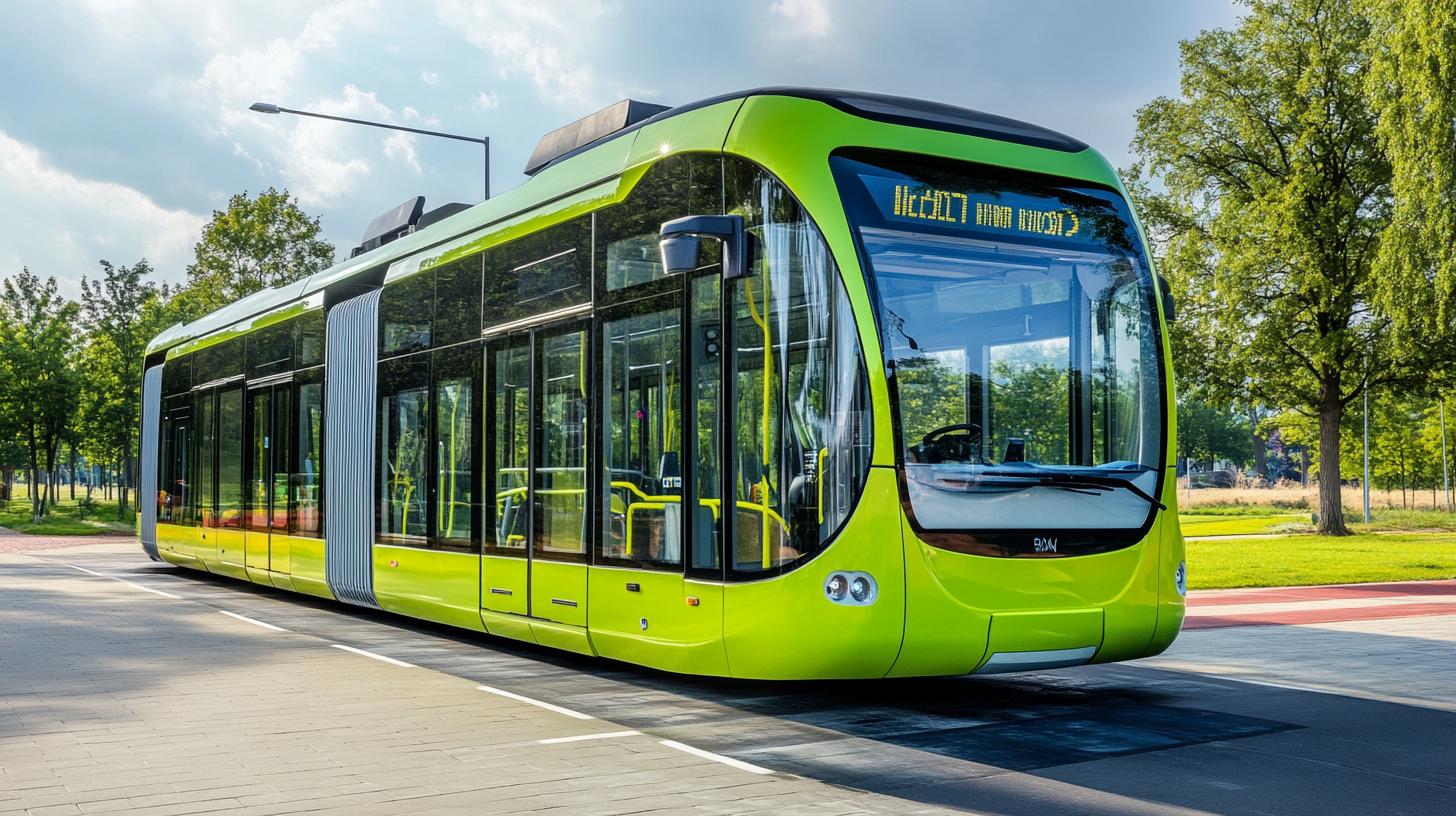In a significant shift towards sustainable urban transportation, New Flyer of America, based in St. Cloud, is set to ramp up production of hydrogen-fueled buses. This move comes on the heels of their largest order to date for 108 buses, destined for California’s San Mateo County Transit. With an increasing number of cities aggressively pursuing zero-emission transit solutions, hydrogen technology is emerging as a compelling alternative.
A Strategic Vision for Cleaner Air
New Flyer’s strategic pivot towards hydrogen and electric buses reflects the growing demand for eco-friendly transit from major cities like New York and Phoenix. The company’s commitment is evident in their plans to expand the St. Cloud facility, including a new hydrogen refueling station. As urban centers worldwide enforce stringent emissions targets, hydrogen-powered buses offer a promising path to meeting these goals.
The Science Behind the Move
Unlike traditional diesel or electric vehicles, hydrogen buses derive power from the breakup of hydrogen atoms in fuel cells, producing only water vapor as a byproduct. According to Kenneth Miller, an engineering professor at St. Cloud State University, these buses not only enhance air quality but also improve efficiency, particularly during frequent stops and starts.
Challenges and Prospects
While hydrogen buses promise environmental benefits and lower maintenance costs, infrastructure challenges persist. The scarcity of hydrogen refueling stations remains a stumbling block, but as demand grows, so too will the network of suppliers and infrastructure. Stephen King of New Flyer assures that despite the shift in technology, the passenger experience will improve, characterized by smoother and quieter commutes.
With a vision for a greener future, New Flyer anticipates that the tide will continue to turn towards hydrogen buses, signifying a pivotal change in public transportation.
Hydrogen-Powered Buses: A Game-Changer or Just Hype?
As New Flyer of America leads an ambitious charge into hydrogen-fueled public transport, stocking urban streets with sleek, zero-emission buses, you may be wondering how this shift shapes the broader landscape beyond just cleaner air. Let’s explore the untold influences on our lives and communities, while diving into the controversies and curious facets of this technology.
Economic Ripple Effect of Hydrogen Buses
The transition to hydrogen buses stands to create a significant economic impact. While initial costs are more considerable than for diesel or electrics, long-term savings on fuel and maintenance give cities financial breathing room. For instance, hydrogen buses require fewer mechanical repairs due to fewer moving parts, potentially reducing transit budgets by millions over time. Additionally, cities investing in hydrogen infrastructure may attract green technology firms, spurring job creation and boosting local economies.
Equitable Transit: Hydrogen as a Catalyst
One lesser-known advantage of hydrogen transit systems is their ability to promote equitable transportation. By focusing on sustainable transit solutions, cities can reinvest savings into underserved communities, improving access to affordable public transportation. Better connectivity and reduced fares can significantly enhance socio-economic opportunities for residents in these areas.
Environmental Impact Beyond Emissions
While the environmental benefits of hydrogen buses—such as reduced CO2 emissions—are well publicized, there are other ecological upsides. Unlike battery electric vehicles, hydrogen production does not require mining rare earth elements, preserving delicate ecosystems. Furthermore, by potentially using renewable energy sources to produce hydrogen, cities could further minimize their carbon footprint.
Controversies: Is Hydrogen Truly the Best Alternative?
The growing interest in hydrogen as a transit fuel is not without its skeptics. Critics argue that the energy-intensive process of producing hydrogen could offset some of its environmental benefits. Currently, most hydrogen production methods still rely on natural gas, raising questions about its true sustainability.
Moreover, compared to battery electric vehicles, hydrogen technology is less efficient in total energy conversion. This continues to fuel debate within the environmental community: is hydrogen a stopgap measure on the road to a fully sustainable future, or a key pillar of it?
What Does This Mean For You?
For the everyday commuter, hydrogen buses promise enhanced travel experiences through quieter and smoother rides—no small comfort during peak hour traffic! However, as cities advance toward adopting these buses, passengers are likely to witness more profound changes, including shifts in transit availability and pricing models.
To learn more about cutting-edge transportation technologies, sustainability goals, and their societal impacts, explore links like United States Department of Transportation, U.S. Department of Energy, and Bloomberg Green.
As New Flyer continues to embrace hydrogen’s promising future, the world watches on to see how this innovation will transform not just our roads but the communities and lives intricately woven into them.


